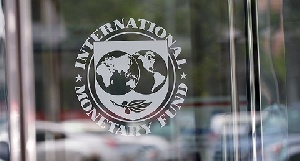Business News of Thursday, 27 August 2015
Source: B&FT
Appetite for foreign debt unhealthy – Analyst
The country’s economy has over the past decade seen an average of 7 percent GDP growth per annum largely on the back of foreign debt, a situation investment advisory firm InvestCorp says presents challenges to the economy.
The firm in its latest report on the economy titled ‘Perspective on recent economic volatility’ said in an environment of new doubts, there is certainly a need to rethink economic policy and corporate strategy.
“Clearly, in the past decade Ghana has witnessed fast growth, with average GDP growth of 7 percent per annum during the period; but the underlying intermediation for this growth has been a noticeable build-up of public and private sector debt, in particular foreign debt,” the report said.
The report further cited the growth in size of Ghana’s capital and financial account which increased from US$300million in 2003 to US$3.8billion as at 2014.
“This build-up of foreign debt, in our view, has presented new challenges for the economy. For the private sector, there must be a clear understanding that strategies to mitigate the current challenges require significant deleveraging -- a conscious shift from excessive reliance on debt to equity capital over the medium-term. For example, we have seen some companies listing local debt as a substitute for foreign debt, which is healthy. However, raising local equity will be even more beneficial.
“Momentarily, we believe that with significant foreign debt exposure and noticeable periodic dividend payments by multinationals to shareholders, Ghana’s monetary policy rate will remain closely linked to developments on the foreign exchange market to contain adjustments in the country’s capital and financial account,” the report said.
Essentially, the report warned that borrowing a lot from abroad has created external liabilities and exposes the country to losses if the currency shows the kind of volatility the country has witnessed lately.
Speaking to the Managing Director of the advisory firm InvestCorp, Sampson Akligoh, he said: “For government and the private sector it is important that future of growth does not come at the back of significant foreign debt.
“So we need to quickly move to ensure that debt does not significantly underline our growth. Almost all Ghanaian companies go to banks and borrow without the requisite understanding of equity, among other things,” he said.
The report further stated that the central bank in arresting the cedi’s fall focus on the broader market rather than solely on the commercial banks.
According to the report, the central bank must adopt a more visible forward guidance approach to exchange rate management -- particularly through its MPC framework, which is not only targeted at commercial banks but also the broader market -- and announce a transparent strategy to build its reserves above current levels to enable it effectively calm the market in the event of shocks.
The report said, presently, the central bank is not doing enough to signal the market about what the cedi's movements will be like in future; not by forecasting a specific exchange rate but giving indications -- for instance, of what foreign exchange inflows and outflows will be like, whether or how it will build its reserves to a certain level or increase its intervention in the forex market, etc. -- anything that helps people form an idea of where the exchange rate will be headed.











